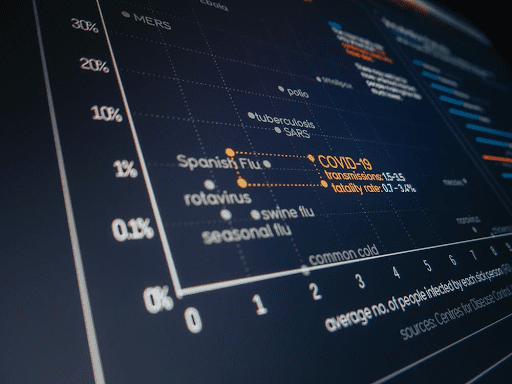A data analyst is someone who is in charge of gathering data, analyzing it, extracting usable information by filtering out irrelevant information, and eventually presenting it in the form of a chart or charts that can be useful to the client.
By the same token, the data analyst should be able to extract useful information from a large amount of data, inquire about the client’s request to filter information according to the required content, effectively analyze the obtained data, segregate data using structural analysis, and deliver data in a well-represented format using various data presentation techniques.
These are yet some of the skills that you need to have to become a data analyst, and for other important skills and how to acquire them, make sure you scroll down the list!
Be acquainted with Microsoft Office programs
Given the fact that data analysis is a method of extracting valuable information from different sources by analyzing, cleaning, converting, and modeling it, you will need certain tools for it. The basic tools that you might be using are different Microsoft office programs such as Excel, PowerPoint, Database Access, etc. These programs are the basic ones, but they can help you to organize, examine, validate, as well as report data. To that end, if you haven’t already been acquainted with these programs, make sure you start as soon as possible since they often present a starting point in the job of a data analyst!
Multidisciplinary knowledge
It is important to note that data analysis is an interdisciplinary area that requires workers to extract knowledge and insights from both structured and unstructured data, and for that, they will be using many different methods from different fields of knowledge. In that sense, the data analyst will need to have at least a basic knowledge of computer science, mathematics, and statistics. To properly analyze data, you will need one set of tools, and to interpret the results, you will need another set of tools and methods.
However, although all this may sound terrifying and “hard to learn”, have no worries, since you don’t have to learn all this by yourself. Instead, a team of experts in data analytics bootcamp can make it easy for you to grasp the most important elements of data analytics and realize that it is much easier than you might have thought! This is because having people who are eager to help you, teach you, and share their experiences with you, is a unique shortcut to becoming a data analyst in a short period of time!

Know how to find sources
As already put, the job of a data analyst often includes responsibilities such as collecting, analyzing and presenting massive volumes of data. In order to do this, you need to have sources. In that way, you should try to peek into all possible sources that you can use to create this data collection. For instance, sales figures, user accounts, customer reviews, apps and software, site traffic analysis, market research, laboratory experiments, and the like, can come in handy in your analysis. However, when retrieving data from various sources, data analysts may often encounter inaccurate data. To that end, they have to have high critical thinking skills and be able to select and erase inaccurate information.
Flexibility and problem-solving
The job of a data analyst is always exciting, vibrant, and lively. In other words, it is everything but linear, plain, and boring. This, however, may require the skill of being flexible, adaptable, and results-oriented. Similarly, as you will be jumping from math to statistics, or program software to data extraction, cleaning, and data visualization, you will need to be as flexible as possible!
Know some coding skills
It can always come in handy if a data analyst is well acquainted with some coding skills. This may be used to extract data more effectively from a number of sources, manipulate it, and show it to consumers in stunning visuals. For example, Python is a popular option in data analysis since it is an extremely flexible and adaptable language. Likewise, there are also other very useful languages and statistical packages such as R, SAS, SPSS, Java, Hadoop platform, SQL, and the like.
Communication skills
Although you certainly know how to communicate with numbers, people will often ask you to explain your results and findings in a simple and compact way that they can easily comprehend. To that end, you must be able to clearly communicate your technical results and analyses to your colleagues, boss, clients, etc.
Remember, nothing is too difficult if you have the right person to make it easy and simple for you to understand and learn!



































